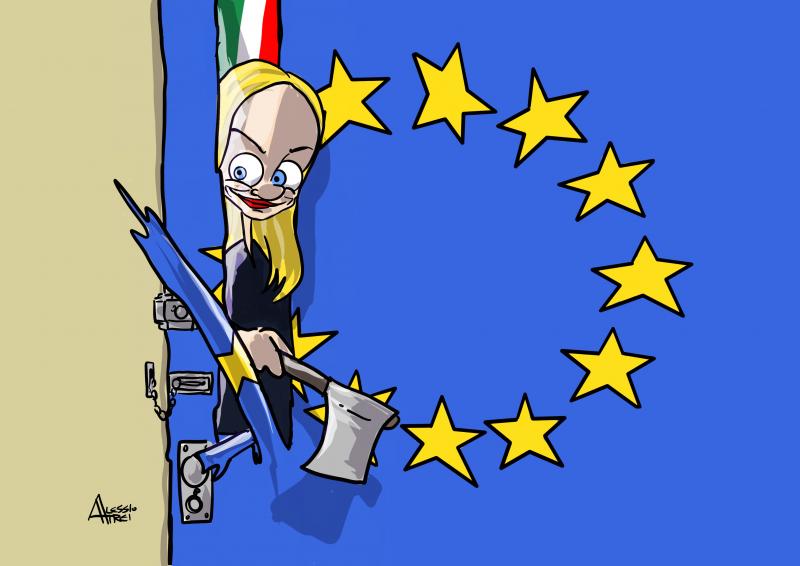The first far-right prime minister in postwar western Europe will be a woman: Giorgia Meloni. Because of the disproportionate system, and the lack of an electoral coalition between the centre-left Democratic party and the reformed Five Star Movement, they now have a massive majority in parliament.
The most important change is in the internal power dynamics within the “right bloc”. Until 2018, the coalition was dominated by Silvio Berlusconi, who was problematic from all kind of perspectives, but he was not far right. In 2018, Matteo Salvini’s Lega became slightly bigger than Berlusconi’s Forza Italia, but now Meloni’s “post-fascist” Brothers of Italy will dominate the bloc.
The massive victory of this bloc will further fuel the media frenzy about the rise of the far right in Europe. But these accounts are largely ahistorical and factually incorrect. First, they ignore the various electoral defeats of far-right parties in other recent elections, including Germany, Norway and Slovenia. Second, far-right parties have been entering the political mainstream and forming governments since the beginning of this century.
If there is anything remarkable about the victory of the Brothers of Italy, and the Sweden Democrats two weeks earlier, it is that both parties have their ideological and organisational roots in (neo-)fascism. But even that is not unique; so did the National Alliance, the predecessor of Brothers of Italy, which was part of Berlusconi’s early governments before merging with Forza Italia. And, more importantly, ideologically, Brothers of Italy and the Sweden Democrats are […]
👉 Continue reading on the Guardian.
CONTEXT
In Italy, the expected victory of the far-right nationalist candidate, Giorgia Meloni, has been confirmed after the legislative elections on 25 September. According to the results, the Fratelli d’Italia (Brothers of Italy, Fdl) party garnered 25,99% of the vote. The right-wing coalition formed by the Fdl with, amongst others, Matteo Slavini’s Northern League (far-right) and Silvio Berlusconi’s Forza Italia (FI, centre-right) is expected to garner a total of 43,79% of votes (237 out of 400 MP seats). At 47, Giorgia Meloni will become the first woman to form a government in Italy as well as the first far-right leader in this position in Western Europe.
Interesting article?
It was made possible by Voxeurop’s community. High-quality reporting and translation comes at a cost. To continue producing independent journalism, we need your support.
The vote was marked by the Fdl’s quick ascent. Heir to the Italian Social Movement (MSI, neo-fascist) founded in 1946 by former close allies of Mussolini, the Fdl went from winning 4,4% of votes at the legislative elections in 2018 to 25,99% in September 2022. The vote has also brought to the fore the underperformance of the parties of the 2018 governing coalition: the Five Star Movement (M5S) went down from 32,7% to 15,43%, the League from 17,4% to 8,77% and Forza Italia from 14% to 8,11%. As for the Democratic Party (PD, centre-left), the main left-wing political force in Italy remained stable garnering 19,7% of the vote.












